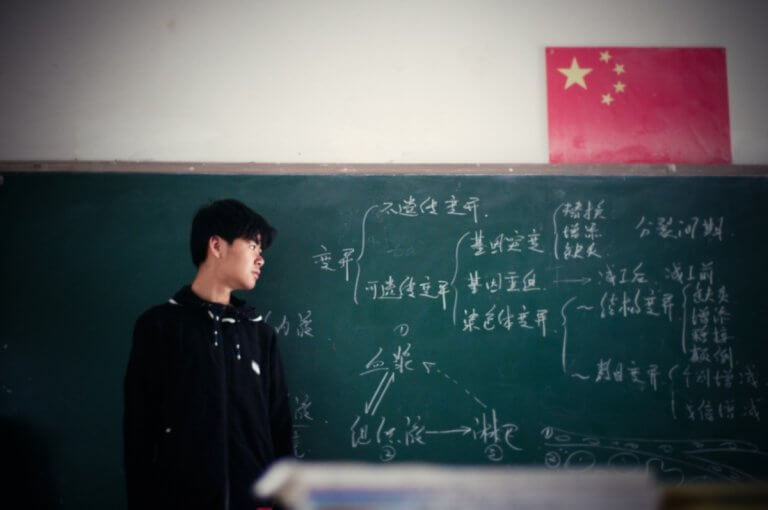
Visas – the bane of every international student’s academic adventure. And if you’re coming from China, the struggle is even worse.
Tightened visa policies targeting Chinese students are limiting the opportunities available to them, with Australia and the US delaying or outrightly shortening visas to Chinese students for a spectrum of possible reasons.
From unforeseen – and unexplained – processing setbacks in Australia, to fears of the Chinese stealing intellectual property in the US, international students coming from China seem to have a much harder ride than those coming from elsewhere.
What’s the USA’s approach?
In the US, the State Department has launched an explicit attack on Chinese nationals working in tech in a bid to protect intellectual property within the sector.
This protection has come in the form of limiting the H-1B visa, which allows international students and those coming from abroad to work in the US for up to six years, to one year for Chinese technology professionals.
The #US is expected to limit #Chinese graduate students working in high-tech fields to one-year visas. Other Chinese nationals working at specific US companies might also require special clearance from multiple agencies. https://t.co/lFTOtSJVNv via @qz
— Rashmee Roshan Lall (@rashmeerl) June 11, 2018
According to the World Economic Forum, 4.7 million recent graduates in China studied STEM subjects – and considering the top five best-paid graduate jobs fall within tech and IT, this visa policy change could have drastic implications on China’s graduate population.
How is Australia controlling visas?
For Chinese students looking to study and stay in Australia, the visa situation is even more nuanced.
Long and insufficiently explained visa delays have caused hundreds of PhD students to miss out on their Australian university offers this year, according to Chinese state-owned publication The Global Times.
These delays led the publication to accuse Australia of purposely delaying the visas due to fears of China being “actively engaged in spying” and maintaining control over its student population studying abroad.
https://twitter.com/jackiemopsy/status/1008039242788896771
Australia’s media has been charged with inflating stories about Chinese students attempting to spread ideology on campuses, labelled part of the ‘diplomatic standoff’ currently occurring between the two countries.
The recently passed Foreign Influence Bill further represents the tense relations between the two countries, as Australia has taken official measures to limit China’s influence in the country.
“Australia-China diplomatic relations are currently at something of a low, partly due to the Australian government’s sharp statements about “Chinese influence”,” Professor Fran Martin, Associate Professor in Cultural Studies and researcher into the Chinese student’s experience at the University of Melbourne, told Study International.
“The Chinese government issued “safety warnings” to students studying here last year, warning them that they may not be safe in Australia. This was seen by many as an indirect response to the Australian government’s hostile rhetoric,” she added.
While Martin says she has actually seen the opposite situation to the one reported in Australian media in her classrooms, where Chinese students are engaged and critical of cultural and political circumstances rather than communist robots, she told Study International she is unsure why the media is engaging in anti-Chinese sentiments, but its effect remains in flux.
What’s the UK’s visa policy?
Amidst this apparent war on Chinese student visas – whatever the reason for it may be – the UK is taking an alternative approach.
The UK is actually making it easier for Chinese students to get their student visa, adding China to the list of ‘low risk’ countries, according to The Times.

The UK could see an influx of Chinese students thanks to a well-timed visa policy change. Source: Shutterstock
As of July 6th, Chinese students applying for a student visa in the UK will no longer have to prove they meet educational, financial and English language skill requirements to study here.
This is a smart move by the UK Home Office, as they can likely sweep up the displaced and disillusioned Chinese students who have been left stranded by visa delays in Australia and distrust in the US.
Chinese students make up the most significant international student market in the world – and as the UK tentatively approaches an EU-free future, it’s a wise decision to look further afield to fill university halls across the nation.
While the US is competing with China to be the world’s biggest economy and Australia is committed to being its own autonomous state, the UK is motivated to grow as a viable and thriving country after its economic divorce from the EU.
Since the international education market is valued at AU$30.9 billion (US$22.8 billion) in Australia, and US$39.4 billion in the US, the UK has a lot to gain from attracting and retaining international students.
By making it easier for Chinese students to study in the UK while global competitors continue to tighten up restrictions, they could see themselves climb to the top spot, or at least maintain their position as Brexit takes hold.
Liked this? Then you’ll love…
UK: government commits to review of international student migration policy
What Australia’s student visa data tells us about its universities’ global popularity







